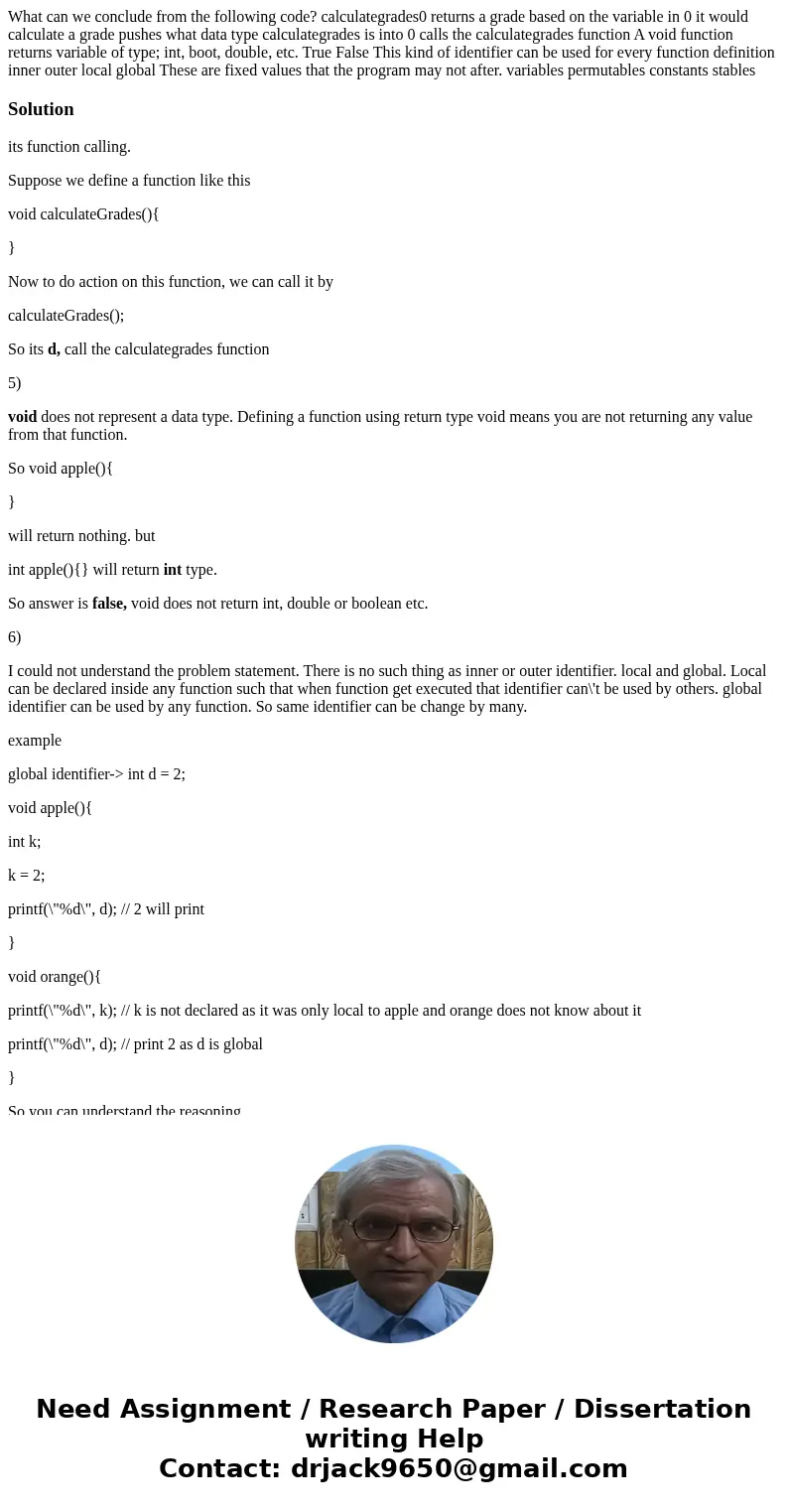What can we conclude from the following code calculategrades
Solution
its function calling.
Suppose we define a function like this
void calculateGrades(){
}
Now to do action on this function, we can call it by
calculateGrades();
So its d, call the calculategrades function
5)
void does not represent a data type. Defining a function using return type void means you are not returning any value from that function.
So void apple(){
}
will return nothing. but
int apple(){} will return int type.
So answer is false, void does not return int, double or boolean etc.
6)
I could not understand the problem statement. There is no such thing as inner or outer identifier. local and global. Local can be declared inside any function such that when function get executed that identifier can\'t be used by others. global identifier can be used by any function. So same identifier can be change by many.
example
global identifier-> int d = 2;
void apple(){
int k;
k = 2;
printf(\"%d\", d); // 2 will print
}
void orange(){
printf(\"%d\", k); // k is not declared as it was only local to apple and orange does not know about it
printf(\"%d\", d); // print 2 as d is global
}
So you can understand the reasoning.
But from what I understand the answer is d global.
7) constant
variables are named as variable because it can change.
stables and permutables are not any pre-defined identifier.
constant are named as constant because you declare it once and you can\'t change it.
const int max = 23;
max = 24;// error
so answer is c, constants


 Homework Sourse
Homework Sourse